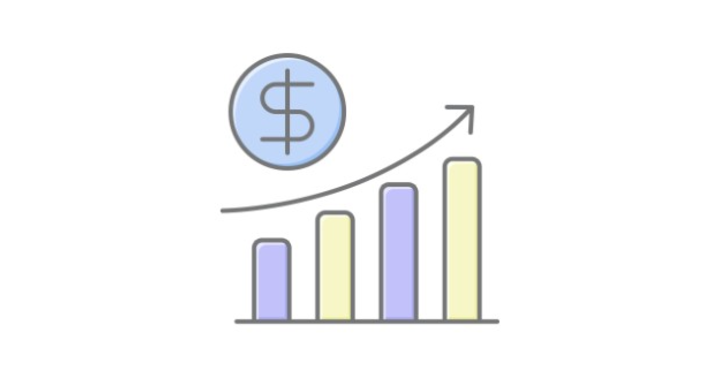Wealth Strategist Eric Miller Reveals How To Become A Financial Beast And Unlock True Wealth

What If Everything You Thought About Wealth Was Dead Wrong?
Most business owners think they’re building wealth, but in reality, they’re just buying themselves a job and hoping the numbers add up in the end.
In this no-fluff, straight-shooting episode of The Deep Wealth Podcast, The host of The Deep Wealth Podcast and post-exit entrepreneur Jeffrey Feldberg speaks with Eric Miller. And if you’re serious about building generational wealth and planning a successful exit, this is one conversation you can’t afford to miss.
From Crash to Clarity: Why Eric Miller Built His Firm in 2008
Eric Miller didn’t pick a cozy time to start his financial planning firm. It was 2008. The markets were melting, panic was high, and optimism was nowhere to be found.
But Miller saw opportunity in the wreckage. He doubled down on a specific mission: serve healthcare practice owners who were underserved and financially vulnerable. That mission didn’t just survive the storm—it thrived.
Since then, Eric’s had over 20,000 conversations with business owners and helped them go from paycheck-to-paycheck chaos to sustainable, exit-ready prosperity.
He’s also the creator of the Econologics Roadmap and the Financial Prosperity Index, two game-changing systems that flip conventional finance advice on its head.
The Dangerous Illusion: Do You Own a Business or Just a Job?
One of the first questions Eric asks every business owner is brutally simple:
“Do you own a business—or do you just own a high-paying job?”
If you’re the key operator, the top producer, the only one who knows how to “really run things”—you’ve built a trap, not an asset.
Eric puts it plainly: “You’ve got to treat your business like an investment. If it’s not paying you properly or building wealth outside the business, then it’s not a true asset—it’s a liability in disguise.”
Stop the Bleeding: Why Most Wealth Is Lost Without You Knowing
You might think taxes or payroll are your biggest expenses. Not true.
According to Eric, your biggest expense is lost income—the money you could have earned but didn’t due to poor systems, missed follow-ups, or mindset gaps.
“Businesses make exactly what they think they need to survive,” Eric explains. “If you don’t include profits and personal wealth as a non-negotiable, your business won’t generate it. Period.”
This is where his “wealth storage account” strategy comes in. Every client is trained to siphon off 10% of revenue into an off-business wealth account—before spending anything else.
It’s not optional. It’s survival.
The Financial Prosperity Index: Your Household Has KPIs, Too
Most founders obsess over business KPIs—revenue per employee, customer acquisition cost, profit margins.
But when Eric asks them to name one KPI for their household?
Crickets.
That’s why he built the Financial Prosperity Index (FPI)—a comprehensive 100-question tool that scores every vital area of your financial life, including:
Business viability
Debt and credit
Estate planning
Future income streams
Tax strategy
Investment efficiency
And here’s the kicker: most successful business owners score high on business viability—and fail miserably everywhere else.
Eric warns, “You may look rich on the balance sheet, but if your estate’s a mess, your taxes are inefficient, and you’ve got no plan for income post-exit, you’re walking blindfolded into disaster.”
The Exit Mindset Shift: It’s Not Just About the Deal
One of the most powerful parts of this episode is when Eric shares the mental model shift that separates real wealth builders from reactive operators.
It’s the exit mindset—but not the way most people think of it.
“Most people only think about an exit when it’s right in front of them,” he says. “But you’ve got to think about the transition from day one. That way, you’re building something transferable and valuable, not just profitable.”
In practical terms, this means building systems, documenting processes, hiring leadership talent, and training your team as if you were leaving in 12 months, even if your exit is years away.
What Gets Measured, Gets Done (And What Doesn't, Destroys You)
One of the most actionable ideas in this conversation is deceptively simple: Track your financials with the same rigor you track your business.
Eric breaks down how most entrepreneurs focus 100% on business cash flow and 0% on personal wealth-building. “You’ve got to build wealth alongside the business—not after the business,” he warns.
It’s not about setting money aside at the end of the month (spoiler: there won’t be any). It’s about paying yourself first, consistently, at scale.
He even compares it to putting on your oxygen mask before helping others. “If you don’t prioritize your household solvency, your business—and everyone who depends on it—is at risk.”
Why Solvency Is the Ultimate Metric in a Post-COVID World
Eric sounds the alarm on a topic few advisors dare to touch: solvency.
Post-COVID, with inflation, rising rates, and geopolitical volatility, solvency is the difference between businesses that thrive—and those that vanish.
He argues that government bailouts may not come next time—and founders can’t afford to depend on luck. “You need to know exactly where every dollar goes and build buffers so you can weather any storm.”
His advice: build a solvency system where 20% of revenue goes to “profit expenses”—reserves, debt payoff, expansion capital, and wealth building.
That’s how real beasts operate.
Practice What You Preach: How Eric Replaced Himself
One of the most impactful moments of the episode is when Eric shares his own evolution.
In the early days, he was the face of the firm, running every client meeting. But it wasn’t scalable—and it wasn’t sustainable.
“I realized I had to write down everything, create playbooks, and build a team that could outperform me.”
The result? Eric’s advisors are now better than him. His business runs without him. And his personal wealth grows whether he’s in the office or not.
For Deep Wealth Nation, it’s a masterclass in “who, not how” execution.
The Real Difference: Why Eric’s Clients Win
Eric isn’t just another advisor focused on 401(k)s and mutual funds.
He’s built a monthly advisory system with deep operational integration—tax, estate, business planning, and personal finance, all in one place.
And unlike traditional firms, Eric works with practice owners and founders, not W-2 employees.
“Your business is your #1 asset—and most advisors ignore it because they can’t earn a commission on it,” he says. “We make it the centerpiece of your wealth strategy.”
The results speak for themselves: exit-ready founders, stress-free transitions, and wealth that lasts beyond the liquidity event.
Final Takeaway: If You’re Not Building Wealth Outside the Business, You’re Not Building Wealth
Eric’s final message is urgent and clear: You can’t afford to wait.
The storm is always coming. Whether it’s a market crash, a health scare, or a buyer knocking on your door, if your house isn’t in order—you’ll pay for it.
But if you apply the strategies in this episode—wealth storage, mindset shifts, solvency planning, and household KPIs—you’ll be light-years ahead of the curve.
Don’t hope for wealth. Build it.
Ready to stop running in circles and start building real, lasting wealth?
Then listen to the full episode now.
And don’t forget to subscribe to The Deep Wealth Podcast for more game-changing conversations that help you grow profits, build your legacy, and thrive in life after the exit.
_**
What if 90 days was all it took to radically transform your business's profitability? Discover Deep Wealth Mastery, the only system derived from a 9-figure deal. Ready to welcome your financial freedom? Start your transformative journey today. Click here to start your journey**
















